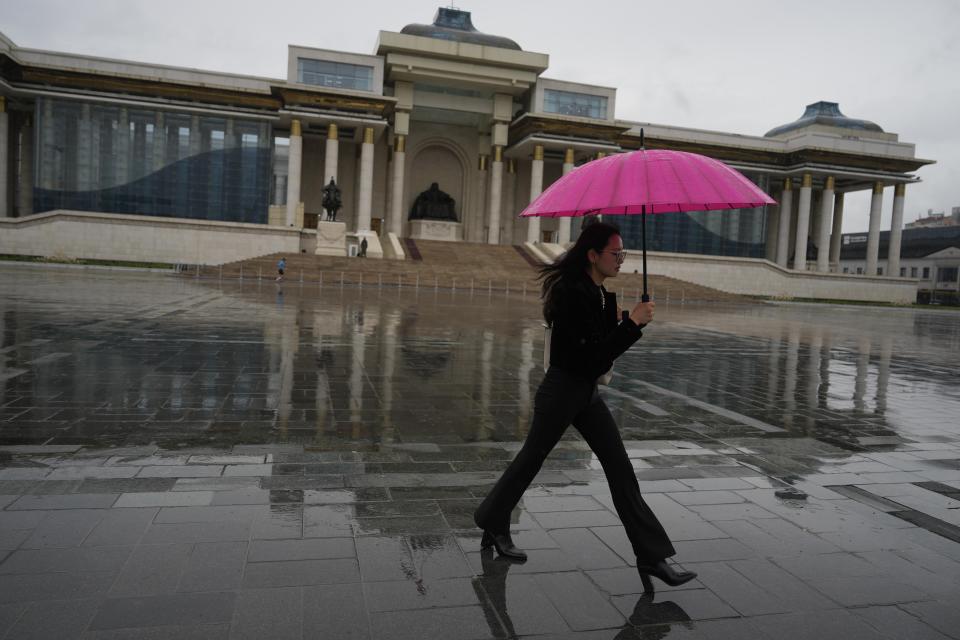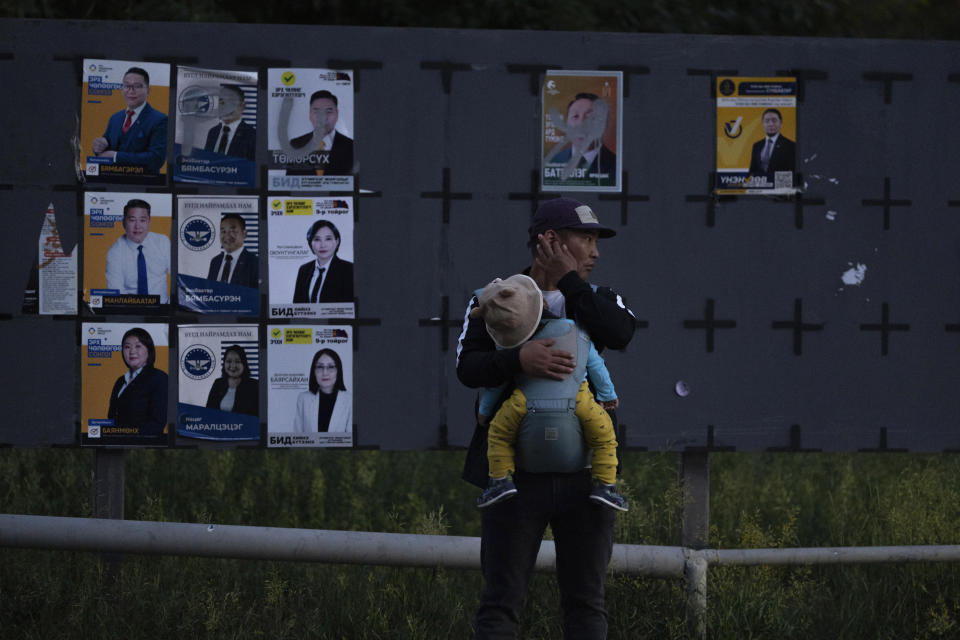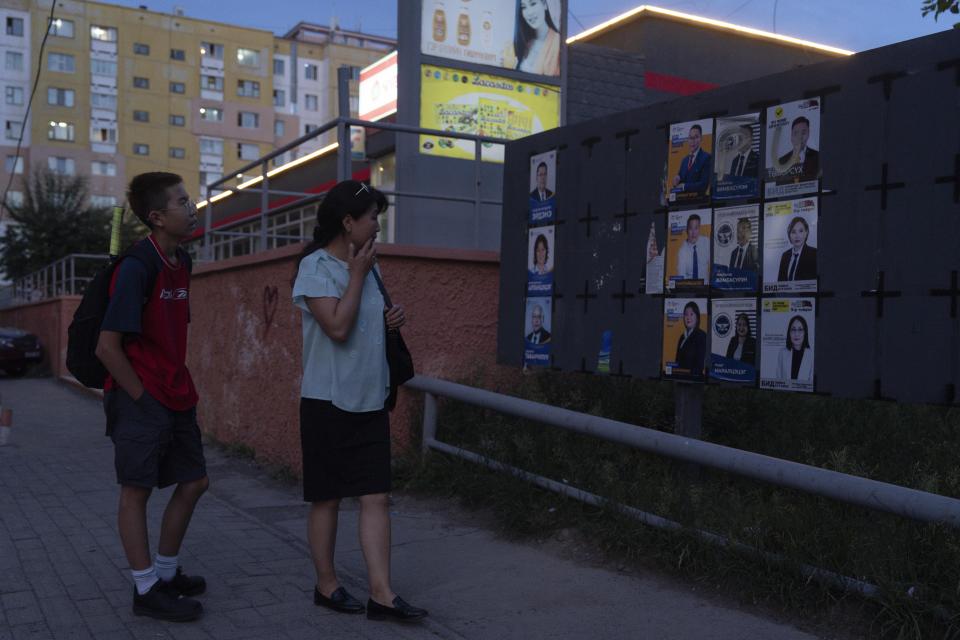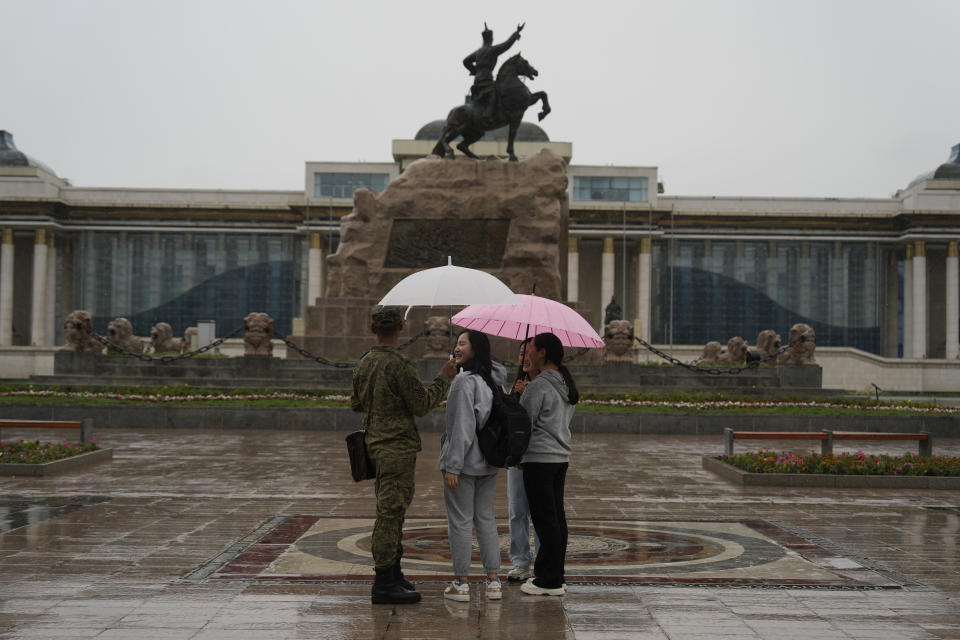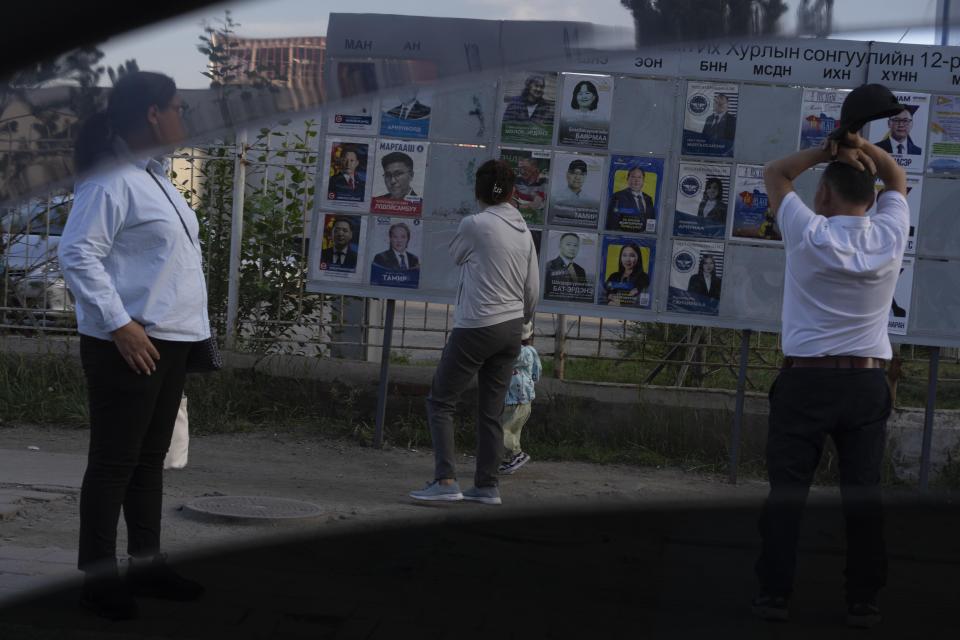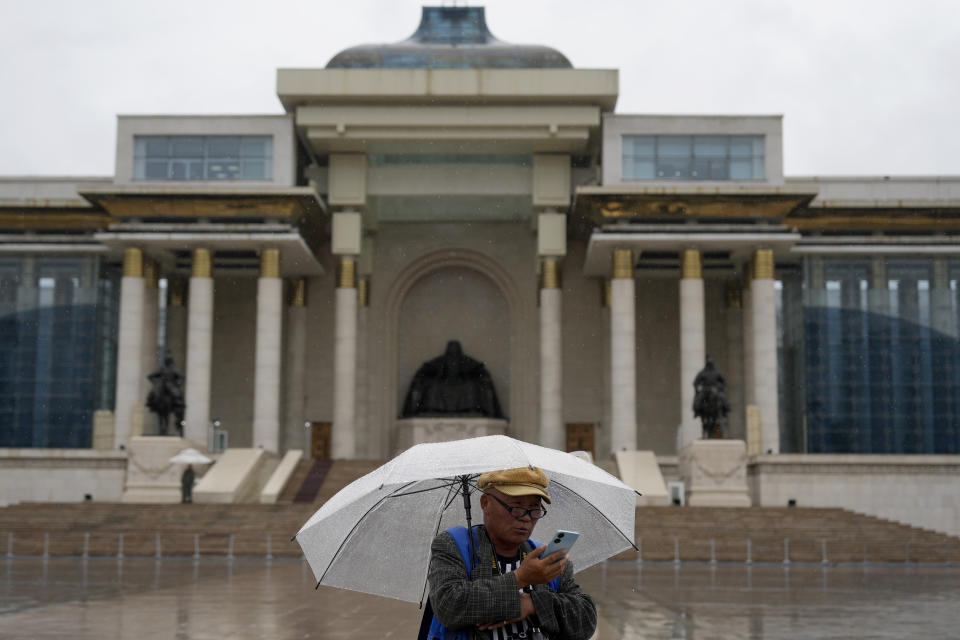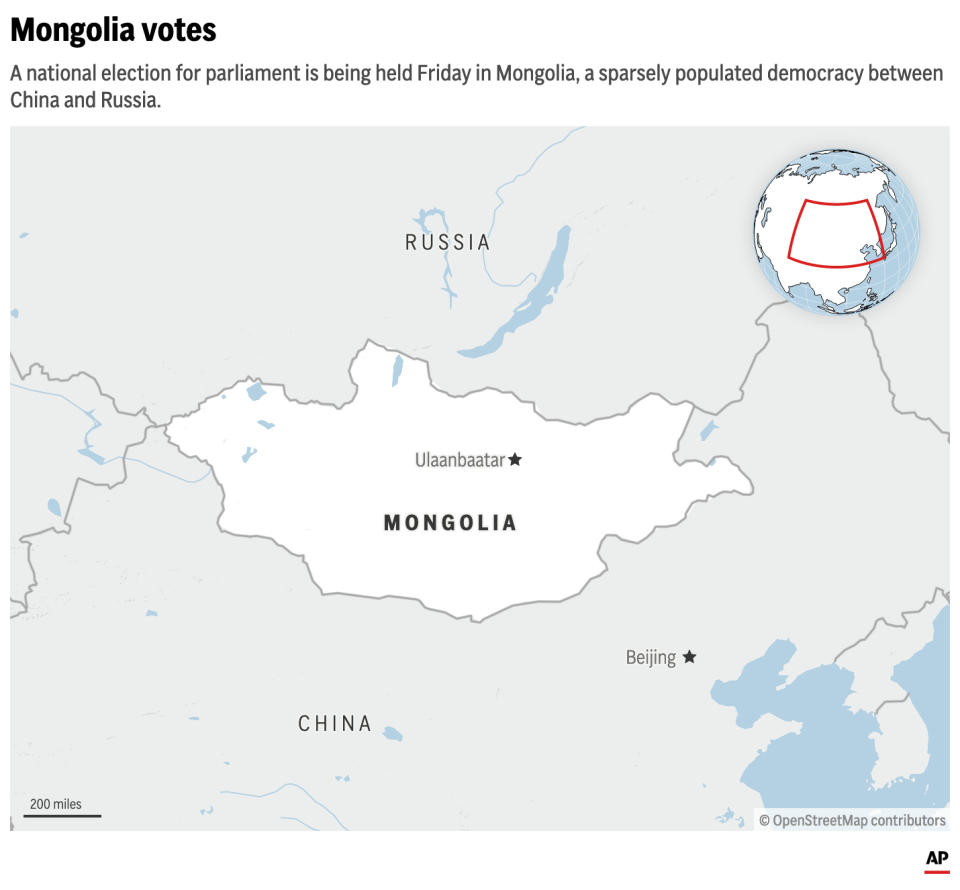Mongolia holds an election Friday. Its people see the government as benefiting the wealthy
ULAANBAATAR, Mongolia (AP) — A parliamentary election will be held in Mongolia on Friday for the first time since the body was expanded to 126 seats, adding some uncertainty to a system that has been monopolized by two political parties and plagued by corruption.
The election in a relatively new democracy — the country was a single-party communist state until 1990 — comes at a time when many Mongolians have soured on the government, which they see as benefiting business interests and the wealthy.
“We have democracy only in appearance,” said Gantamur Dash, who earns money taking photos of tourists at the central square in Ulaanbaatar, the capital. “Only a few are living luxurious lives and the rest of the population is poor.”
Mongolia is a sparsely populated country of 3.4 million people in East Asia squeezed between China and Russia. The government has sought to maintain ties with its much larger neighbors while also building new ones with the United States and its democratic allies — a delicate task since the two sides are increasingly at odds.
The political system is serving the interests of a few instead of the general population, said Sumati Luvsandendev, the director of the Sant Maral polling organization, adding that the United States faces the same problem.
Still, he said, most people want to stick with democracy. “Communism doesn’t work for Mongolia,” he said. “It is a collective system and we are ... individualists.”
The ruling Mongolian People’s Party is favored to win the vote, though the overwhelming majority it holds in the current parliament could be reduced.
The parliament approved a constitutional change last year that added 50 seats and created two ways of electing members: 78 are chosen from 13 multimember constituencies and 48 are allocated to political parties depending on the percentage of the vote they get in the election.
The new system may give more political parties a chance to win seats in parliament, though they will have to reach a minimum percentage to do so.
Baljinnyam Nemekhjargal, a bank manager, favored having a strong ruling party in the previous election in 2020, but he said he no longer thinks so.
“I think the reforms were right,” he said. “We don’t need a supermajority. The opposition should be strong too.”
Sukhbaatar Enkhjargal, the head of a tech group that does election monitoring, isn't convinced the changes will help and worries that they will create new problems. They will give more power to the party leaders, as lawmakers chosen by the party vote will be loyal to their party, not to the voters from a particular constituency.
“At the beginning of the democratic period, we’ve been quite successful,” he said. “We’ve been, like, ‘Oasis of Democracy’ from central Asia, etcetera. But now we really going back.”
Discontent with the government has been fueled by corruption. Large protests broke out in 2022 demanding that officials be held accountable for the alleged theft of 385,000 tons of coal from stockpiles on the border with China, a major buyer of Mongolian coal.
“Mongolian democracy has proven to be resilient over the years but ... continued support ... in the form of democratic solidarity and increased economic engagement will remain vital to Mongolia’s ‘Oasis of Democracy,’” the International Republican Institute, an American group that promotes democracy worldwide, said this week in an online post on Friday’s election.
The two largest parties, the ruling Mongolian People’s Party and the Democratic Party, have included younger candidates in their mix in a bid to woo potential young voters and reshape their party images to counter public cynicism toward the government.
Younger voters make up a large part of the voting-age population, but historically they have not turned out in large numbers. If they do, that could benefit the HUN Party, which has emerged as a potential third force in Mongolian politics.
___
Associated Press video producer Olivia Zhang contributed to this report.

